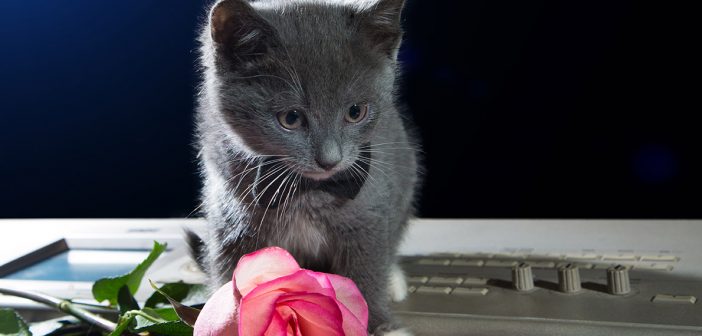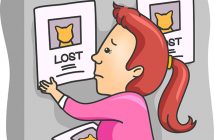by Tracy Jasperson
When the unthinkable happens and your best animal friend leaves you, how do you grieve? How and when do you move on? You may find yourself wondering if you will ever move on, or if you even want to?
As an animal lover and pet owner, the simple fact is most of us will outlive our pets. We understand this when we get our pet. You will be there when the puppy is chewing on favorite leather gloves, when the kitten is sleeping in the crook of your neck, or when your little bunny fits in the palm of your hand. You’ll will be there when it’s time to be fixed or when that litter of new babies finally arrives. And when she needs a vaccination, get the sniffles, or exercises too hard and sprains her ankle. You’ll be there when her muzzle starts to turn gray, when her hair starts to thin, when she isn’t as spry as she once was. As pet owners, we’re there until the end regardless of whether it comes on suddenly and without warning, or with much contemplating, tears, and prayers. The end will come… and you have to go on.
Losing a pet is not the same for everyone. Your loss is not the same as my loss, your neighbor’s loss, or your best friend’s. Everyone has a way of working their way through the difficult times in life. Losing a pet can be one of the hardest.
Elizabeth Kubler-Ross first examined and structured the stages of grieving: bargaining, anger, depression, denial, and acceptance. These stages are not cut and dry, not black and white, they are not assigned a timeline and don’t always go in order. You may think you have accepted your loss only to feel the next day extremely angry about the whole thing. You may know you made the right choice one day only to beat yourself up mentally the next, worrying maybe you didn’t do enough. This is normal because there is no normal! Don’t worry about whether or not you are handling it well, if you are grieving too long, or not long enough. Don’t overthink it. You did what was best for your pet, and now you’re doing what is best for you. You have to do what works for you, your family, your life.
In a situation dear to my heart, I was walking my dog in my cul-de-sac one evening. I let my dog off-leash and he was running around happy as can be. As we neared our home, I thought to put his leash on, and brushed the thought away because, we were literally in my driveway. Just then, my dog darted out into the main street and across to the other side. What did he see? I don’t know. As he was coming back, one car stopped for him, but another coming the other direction did not. As he died, and for days after, I mentally beat myself up for not putting that leash on.
I killed myself with shame for taking him off-leash in the first place. This was a sudden loss. This was not expected. This could have been prevented. My home and heart were empty. I couldn’t cope. I couldn’t stand to be in the house without a dog in it. I couldn’t be without a dog, so the next night, I went out and got a puppy. Now this sounds insensitive, I know. But as I held my new puppy, and loved every ounce of her, I cried for him. I cried for my dog that passed just two days before. My pup helped me grieve and heal in ways that nothing else could. Now, years later, I still miss him. I would give anything to have him back. But I also love the dogs I have now. I have not replaced him at all. I have added to my life and to the memories of my previous pet.
My best friend’s story is completely different, but worked for her. Years ago, she met a boy and they fell in love. They decided to get a puppy to raise together. Soon they broke up, and she raised the puppy by herself for 14 years, until he fell ill from age. She chose to let the dog pass away. She never got another and doesn’t even want one. She says, “I had the best dog ever and will not tempt fate again, because I could never have it so good twice in a lifetime.”
These situations show opposite extremes, but they were the perfect way for each of us to grieve for our pet and cope in our own way. We each have a memorial to our pet in our hearts, and in both cases, a shelf in our home. Your pets will be memorialized in your own way, inside and out. In both of stories, I don’t think I could even point to the times when the stages of grief were evident, because most of the time when I think of my dog, those stages run all over my mind in no particular order. But while once it was all I could do to keep myself together, now I can smile when I think of him. I still miss him, I still feel sad when I see pictures or think about him, and especially when I see a dog that looks like him. So does my friend. We’ve had many conversations about our dogs in the past – sometimes ending in tears – but always ending with a smile. This is what makes a great pet owner.




